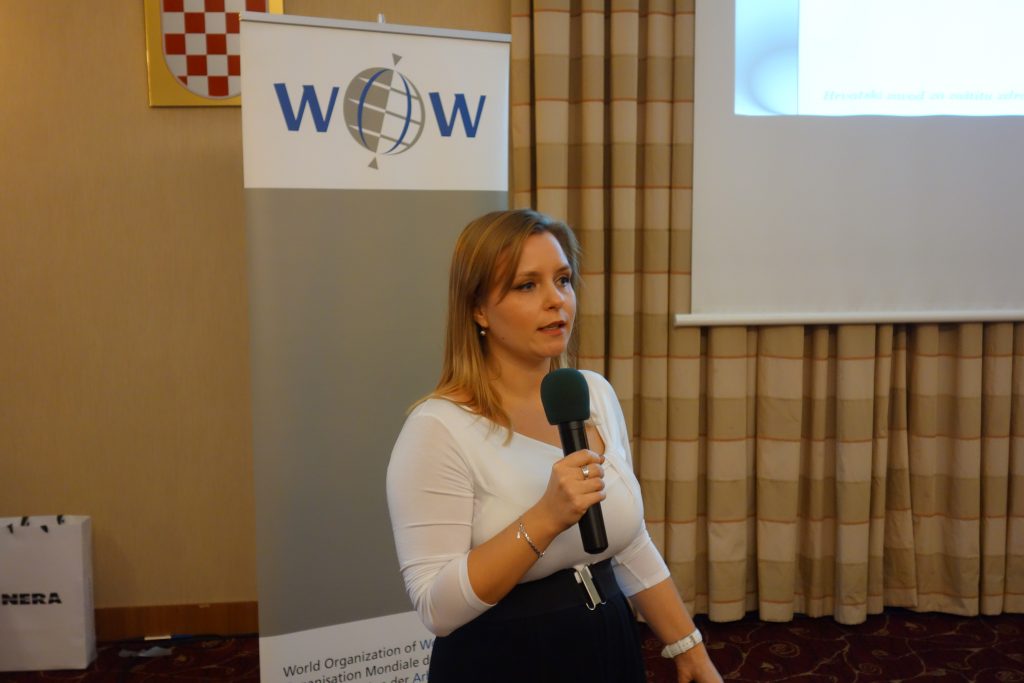Stress at work is an increasing problem. Increasingly more people are experiencing various forms of stress. Stress at work is spiralling out of control, with many employees in danger of completely burning out. This should not be confused with ‘just working hard’. The effects of actual stress are far more reaching.
Everyone who is working experiences feelings of pressure or work-related stress at some point. No job is excluded. Any job may have stressful elements. This is even so for those who really love what they are doing. In the short-term, one may experience pressure to meet deadlines or to fulfil challenging obligations. But as soon as work stress becomes chronic, it becomes a problem. It can be an overwhelming feeling, which is harmful to both physical and emotional health.
In the countries in the West-Balkans the stress of losing a job without a safety-net is tremendous. Many workers are faced with the same issues as in the Western European countries, but the conditions are worse. The pay is worse. The workload is far too high etc. All points mentioned earlier are present in these countries, but with far greater effect.
From 22 – 24 November 2016 the World Organization of Workers (WOW) in cooperation with the European Organization for Workers’ Questions (EZA) and supported by the European Commission organized a seminar focusing on the implications of stress. It was held in Zagreb, Croatia as part of the Special project for the Western Balkan which EZA has had on the agenda for a number of years. 29 persons (including experts and technical support) from nine EU Member States and Candidate Member States participated in the seminar.
Mr. Tsvetomir Tsanev, Project Manager at European Agency for Safety & Health at Work – EU-OSHA (Spain) opened the seminar by his contribution on ‘Managing stress and psychosocial risks at European workplaces’. Stress is truly a big challenge within the European workplaces. Some jobs, however, are more prone to stress than others. Having to deal with difficult customers, patients, pupils etc. is experienced as very stressful. Followed by time pressure. Furthermore, risk assessments are not carried out regularly in companies independent of their size. This shows that companies either do not see it as a problem or that they lack the expertise for this. Research does show, however, that companies who have adequate management of psychosocial risks have better results. The key objectives of Healthy Workplaces Manage Stress are:
• Raising awareness about the growing problem with stress and psychosocial risks
• Focus on the positive effects of successful psychosocial risk management
• Increasing the enterprises’ practical knowledge on recognising and preventing psychosocial risks at work
Ms. Dr. Maria Prodromou, Lecturer Cognitive Behavior Psychotherapist at Dep. of Health Sciences, School of Science Clinical Psychologist, European University of Cyprus (Cyprus) then took the floor to discuss ‘Stress at the work environment’. She stated that “Stress is useful, when the its levels do not interfere with the effectiveness of the effort needed for performing an action.” Work-related stress has benefits to some extent, but often it leads to enduring difficulties. Work-related stress is responsible for 40% of work-related health problems and 50-60% of absences from work. The costs involved are incredibly high. The causes of Work-Related Stress can be divided into personal characteristics and external factors. Generally one can say that when working-conditions in the broadest sense do not comply with expectations and desires persons my become disillusioned which then has effect of their performance. This has not much to do with the height of salary (of course this varies from one country to the other), but more so about being able to create your surroundings, having the feeling that one is heard, and having a pleasant atmosphere at the workplace. Furthermore, involvement is key.
This was confirmed by Ms. Marija Zavali?, Director of the Croatian Institute for Health Protection and Safety at Work (Croatia). She focused on the physiological effects of stress. The human body is able to deal with stress to a certain extent since it is a feature that was very useful in the early days of existence. Today stress is still necessary at times because it focuses a person for a certain task. But too much stress causes all kinds of physiological problems, thus leading to loss of working-hours. Workers have a significant increase in blood pressure after returning to the office after the weekend. It has been shown that more heart attacks and other cardiovascular events on Mondays compared to any other day of the week. Cardiologists have named this phenomenon «Monday morning syndrome». But many other forms of stress-related effects are experienced costing the company and society large amounts of money.
Mr. Dr. Andreas Strempfl, Employee of the Department of Safety and Health – Social Insurance Institution of the Farmers (Austria) spoke of the ‘Phenomenon stress – possible solutions’. He quoted the Sebastian de Grazia (1917 – 2000): ‘What kind of rule is that? The more time-saving machines there exist, the more Man is under pressure of time’. Indeed, it sounds illogical, that machines that should enlighten our work are the cause for more pressure and thus stress. He underlined that there are inner and outer causes for stress. He furthermore stressed the relationship with stress and accidents which occur more when increased stress is experienced. Also the relationship between stress and an unhealthy lifestyle is proven to be evident. Leading to even more costs for society. Health should be in balance and stress is often the cause of a misbalance leading to all kinds of problems.
Mr. Rolf Weber, Political Adviser and International Secretary Kristelig Fagbevægelse – KRIFA (Denmark) then presented a ‘Spot Stress: A case study from KRIFA’. He showed the symptoms of work-related stress which are: Organisational; Physiological; Cognitive; Emotional; Behavioural. When looking at Denmark it could be seen that whereas in 1989 the 5.8% of the workers experienced stress, in 2015 this was 14.2%. Krifa thus ventured on a mission for Happiness at Work. In 2016 they launched the Job Satisfaction index. Job satisfaction is not easy to measure, but according to the research done 71% of job satisfaction is explained by the index. Labour-market factors of importance are Basic rights, Safety, Salaries, Working environment. Purpose and colleagues turned out to be most important for job satisfaction followed by achievements. Salary, though important of course, was slight less important in the scale. This may be very different in other countries of course. To help prevent stress Krifa developed a large variety of products to spot stress at an early stage and give support to those already experiencing stress.
The final speaker of the seminar was Ms. Helena Koren, Psychologist at the Croatian Institute for Health Protection and Safety at Work (Croatia). Her contribution ‘Workplace stressors: What can be improved’ dealt with the impact of the organization. There are a number of features in a company having negative effects. The manner an organization is structured and the level of influence an individual worker has on designing the working conditions is of great importance. Workers need to be heard during decision-making processes that affect their particular job. If this is not the case then unproductive organization behaviour could be one of the results as well as absenteeism due to health or dissatisfaction. Companies and management should become more aware of this.
Stress is still not regarded as problematic as research is showing. This is strange since the costs involved should make it a top-priority. Steps are made but the culture of a company does not change fast enough. The coming years will for sure lead to more cases of stress. It is already the case that more and more younger people are confronted with burn-outs. A clear sign that something needs to be done.
for pictures click here





